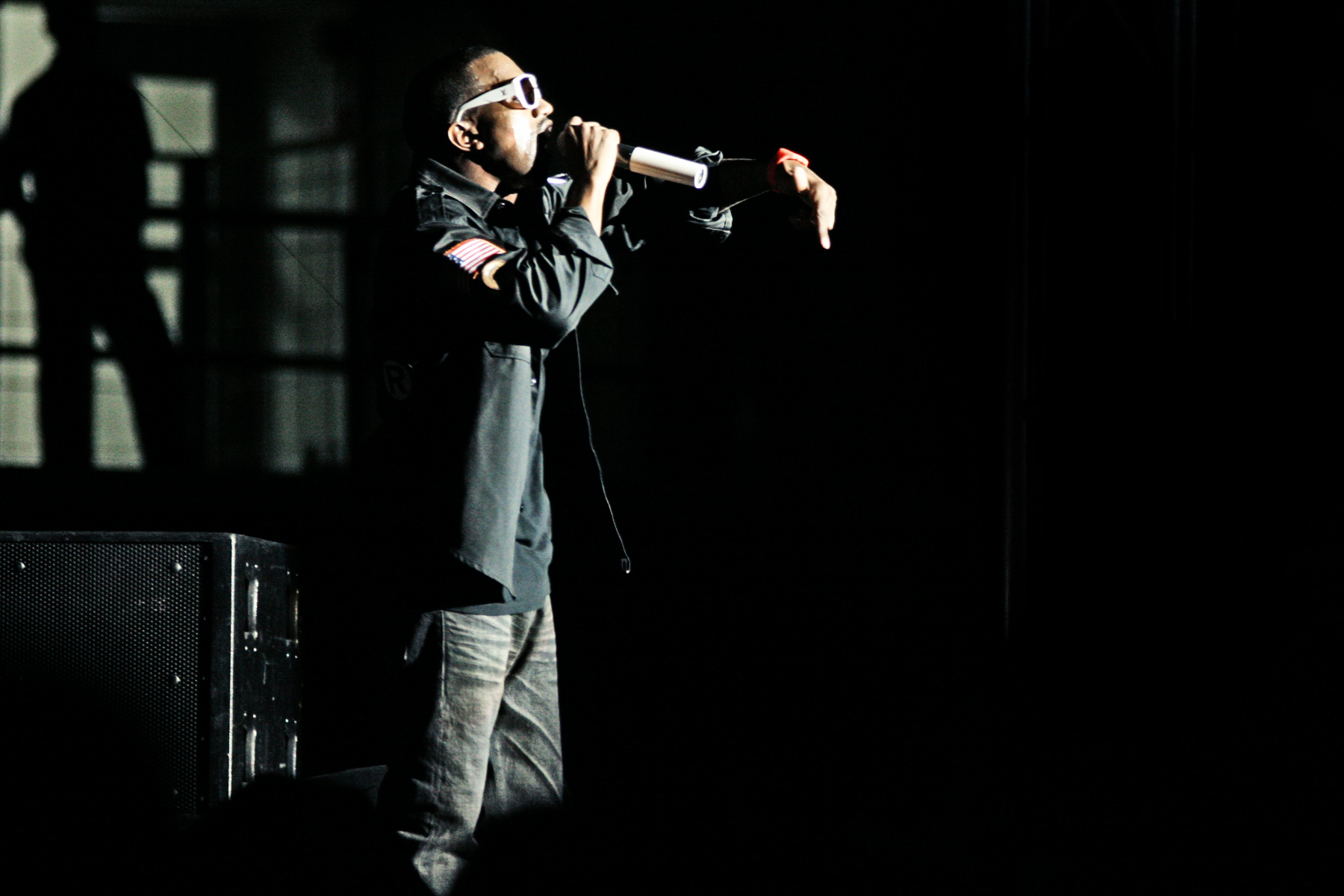
Eight years ago, Kanye West released “POWER.” The single made Time Magazine’s list of top ten songs for 2010. Critics celebrated it as “classic Kanye”— dark, cocky, and bold. Despite his 2008 controversy with Taylor Swift at MTV’s Video Music Awards, West was thriving in the eyes of his fans and the general public and was a force to be reckoned with.
Fast forward to 2018, less than a decade later, and Kanye is still a force to be reckoned with, but a much different kind. He is the Trump-supporting, MAGA hat-donning kind. The kind that supports alleged abusers in their careers (he collaborated with 6ix9ine and XXXtentacion, two breakout rappers accused of sexual crimes and domestic assault, respectively). The kind that believes slavery is a choice.
Anyone who follows West’s Twitter, listens to his controversial album, or watched him dance in a Perrier sparkling water costume during Saturday Night Live is likely asking, “What happened?”
The artist has never been one to conform, whether that be in terms of his genre, style, or creative process. We’re talking about the man who repeatedly refers to himself as God and who passed off biker shorts as high fashion. His standards and choices tend to make observers do a double-take when compared to those of his celebrity contemporaries.
In the past, the public has been willing to pass these quirks off as the workings of an artist. The public saw West as edgy and as a standout in a genre where lyrics are the same and rappers cast a similar shadow. We dismissed and even defended his oddities; he is, after all, a creative. It’s his job to put thoughts and ideas into the sphere that weren’t there before. Some have even equated West’s antics with those of a visionary. In an interview earlier this year, Chance the Rapper expressed that West “thinks about himself, like, 300 years in the future … and figures himself as trying to create a bigger blip on the long timeline.” In the mind of Chance, West’s behavior wasn’t erratic but revolutionary, implictive of some greater perspective that we can’t currently understand.
But the shenanigans of the past year are strange even for West. Once lauded for his commentary on institutions (take lyrics like, “Face it, Jerome get more time than Brandon / And at the airport they check all through my bag / And tell me that it’s random,” for example) and his defense of his race, he now finds himself with a reputation that will likely last longer than any of his bizarre and fleeting phases: the bad guy. He transitioned from saying that “George Bush doesn’t care about black people,” to stating that slavery was a choice and the results could very well be devastating for his career.
West has alienated himself from nearly every sector of the public: the white Taylor Swift supporters, the minorities facing more fear and marginalization than ever in the aftermath of Trump’s election, the victims of sexual assault who resent the problematic Soundcloud hypebeasts currently en Vogue, even the would-be fans counting on their favorite rapper to focus on music production rather than cultural pot-stirring. With all these people turning away from West, who is left to support his career as a rapper? Soon, not only will the public be deaf to his ranting but they will be deaf to his music as well.
Maybe a celebrity of a lower caliber could fly under the radar with behaviors like West’s. Maybe a lesser-known artist could cause similar controversy and still keep a grip on their fame and fanbase. But West is high-profile. Much like our Commander-in-Chief, West is easy to dislike because he is extremely public with his opinions and quick to bash anyone who disagrees with them. With over 28 million followers on Twitter and an undeniable presence in pop culture (due in part to his links with the Kardashian family), he is a distinctly visible target for commentary — and both celebrities and non-celebrities alike have been firing away as of late.
Comedian Pete Davidson performed a sketch about West’s political ramblings on SNL’s Weekend Update. Actor Chris Evans heavily criticized the rapper on Twitter, while singer Lana Del Rey called Kanye a narcissist with “delusions of grandeur” on Instagram. They join a long line of figures who have either negatively addressed West’s actions or unfollowed him on social media over the past year, including Stephen Colbert, Kobe Bryant, Snoop Dogg, Kevin Hart, and John Legend. Even Chance the Rapper, though he is currently working on a musical project with West called “Good Ass Job”, recently conceded that, “we have to work with Kanye on doing a good ass job on himself. And just like understanding the mechanics of everything that he may not understand.”
These are stars that people idolize and with Hollywood making West out as the villain, it is all the more easy for the general public to do the same.
The Kanye West following is shrinking. Fewer and fewer people see him as the man who revolutionized rap in the early 2000’s while more and more see him as a misguided or even mentally unsound individual abusing his platform to gain attention. There’s a Kanye problem, and if the rapper doesn’t make some serious shifts in his perspective and behavior soon, he risks destroying the musical legacy he has built for over a decade.
Or, in the words of Pete Davidson: make Kanye 2006 again.